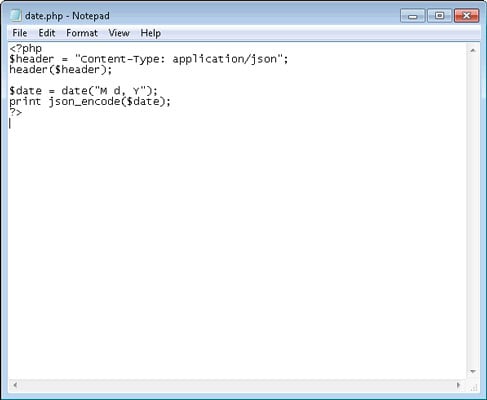Share this
❤️ Click here: Date in json
NET is the standard MIT license. You're answering the opposite question: how to consume JSON dates once they're already made though your advice is sound. In JavaScript, array values can be all of the above, plus any other valid JavaScript expression, including functions, dates, and undefined.

JSON is text, and we can convert any JavaScript object into JSON, and send JSON to the server. Note, unless you're parsing that JSON string by some other means or only expect users to have modern browers with a built in JSON parser you need to use a JS framework or JSON2 to parse the JSON string outputted by the server into a real JSON object.

Share this - Each time the Read method is invoked, the parser consumes the next token, which could be a string value, a number value, an object member name, the start of an array, and so forth. This could be in a browser, Node.

Dump ; Now the problem I am facing is how to create a Date object from this in JavaScript. All I could find was incredible regex solution many containing bugs. It is hard to believe there is no elegant solution as this is all in JavaScrip, I mean JavaScript code trying to read JSON JavaScript Object Notation which is supposed to be a JavaScript code and at this moment it turns out it's not cause JavaScript cannot do a good job here. I've also seen some eval solutions which I could not make to work besides being pointed out as security threat. Is there really no way to do it in an elegant way? Similar question with no real answer: JSON supports numbers, strings, objects, arrays, and the literals true, false, and null. Such meta-members can be used to revive the JSON object to a strongly-typed runtime object later. I think the practice of sticking a date in a string is stupid, because it unnecessarily creates reserved string patterns and tries to match them on every string. The resulting number is passed into the Date constructor. Another option is to simply format your information properly on the ASP side such that JavaScript can easily read it. Consider doing this for your dates: DateTime. This answer presents two solutions - the first one is correct the parseInt and the second one wrong, so not sure whether to upvote or downvote! The problem with simply outputting as a string is the date can easily flip backwards if the server is in one country eg US and the browser in another eg UK. Well the 1293034567877 is not the JSON I have, right? Also I don't need to get the number out the JSON, I need to get the Date out the JSON. I'm expecting a little bit more from JavaScript than just being able to to everything with regex. I need my code to be readable and not look like a cartoon curse. Anyway I gladly stand corrected, really. As for your suggestion that Date can be represented as String I can say that everything can be represented as String, right? But this would not make our job easier, but terribly painfull and hellish. I guess my problem stems from the fact that I considered JSON as a serialization format advertised to take less bandwidth and work better with JavaScript than XML. As it turns out it's not, at least not a painless one. Now when I think about it, it seems obvious as you can call eval on JSON. Also note that you don't need boolean and integer data types support in JSON, you can just put them in strings, right? Can you imagine how awfull that would be to get anythong from JSON then? I side stepped this issue by formatting the date to its ISO 8601 string representation instead of dumping the Date object directly... Here is a sample of ASP. Angular treats this as string instead of Date. Net for things like this. If you were able to get it to print something like the following out it should work. Note, unless you're parsing that JSON string by some other means or only expect users to have modern browers with a built in JSON parser you need to use a JS framework or JSON2 to parse the JSON string outputted by the server into a real JSON object. As native browser support is more efficient and secure than eval , it is expected that native JSON support will be included in the next ECMAScript standard. I am really disappointed to find out how this is handled and I basicaly consider it a mistake in JSON spec. NET then use this inside your JsonResult method: JsonConvert. DateFrom } } ; Dates are always a nightmare. As we start with new then our sentences will excecute this: new Date 1455418800000 Now, one thing I started using long time ago, is long values that are represented in ticks... In fact, I use it too in databases. Perhaps is quite late for this answer, but can help anybody arround here.
MVC jSon Convert Date1262322000000 to short date string
The toJSONString functions for Array and Object types are more interesting. Objects are delimited with and date in json commas to jesus each pair, while within each pair the colon ':' character separates the key or name from its value. No differentiation is made between an integer and floating-point value: some implementations may treat 42, 42. The database time zone can be changed using ALTER DATABASE, but changing the time zone of the database is too as it's generally only relevant with the TIMESTAMP WITH LOCAL TIME ZONE data type. I've never used that before so I am not sure why it would be this way, but I've never had any problems with JS dates on the client. TotalMilliseconds; else return null; } set { this.



